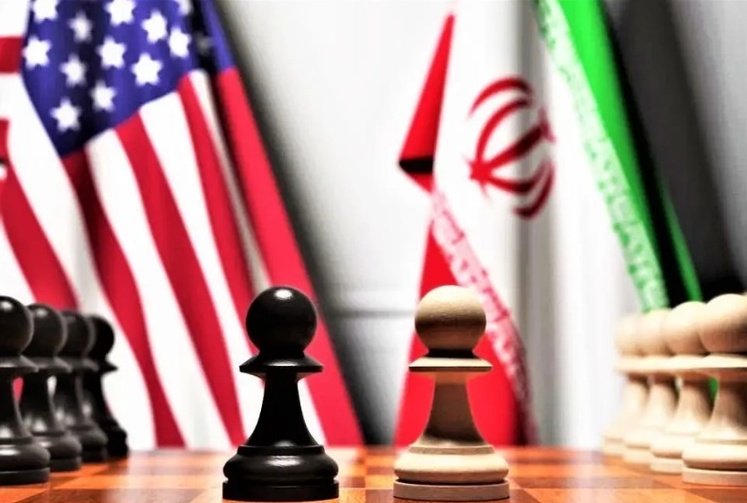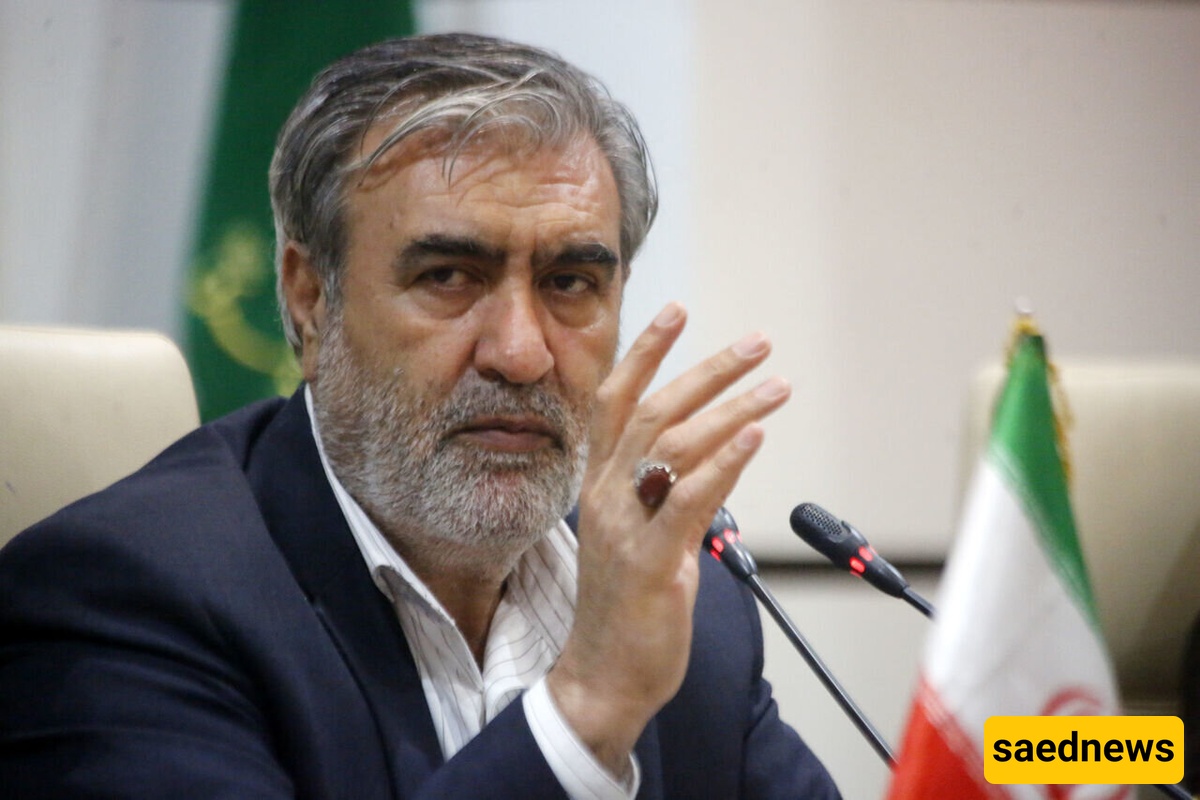SAEDNEWS: Iran’s National Security Commission chairman emphasized that no urgent negotiations will take place with untrustworthy parties and reaffirmed that nuclear enrichment remains a sovereign, non-negotiable right, while also highlighting Iran’s strengthened defensive posture following the recent 12-day military conflict.

According to Saed News citing ISNA news agency, Ebrahim Azizi, Chairman of Iran’s Parliamentary National Security Commission, stated on Sunday, August 10 (19 Mordad in the Iranian calendar), during a press conference in Shiraz marking Journalists' Day, that there is no urgency to resume negotiations with parties deemed untrustworthy.

Azizi emphasized that the Islamic Republic, rooted in strong ideological and religious foundations, has never feared dialogue or negotiation. “To think that negotiation means retreat or weakness is a misconception. Negotiation in the Islamic system has always been pursued correctly and without fear,” he said.
Regarding past talks, Azizi stated Iran has demonstrated a willingness to negotiate for the nation's interests but has proven that opposing parties lacked sincerity and commitment to principles. “During five rounds of previous negotiations, Americans sought deception and used the negotiation table for malicious aims. Just as we succeeded on the battlefield, we also succeeded in these talks by exposing the political systems that lack frameworks and honesty,” he added.
Azizi further explained that the current state of negotiations is indefinite: “Since the revolution, Iran has engaged in negotiations and agreements, but at present, there is no specific time, place, or agreement for new talks. Rushing into talks with non-principled parties is unacceptable.”
On nuclear enrichment, he underlined: “We insisted on acceptance of Iran’s enrichment in past talks. This principle is non-negotiable because it is a legitimate right of the Iranian nation.” He clarified that while some mistakenly equate Iran’s nuclear industry with weapons development, it is vital for medical isotope production, cancer treatments, water desalination, agriculture pest control, steel production, and other peaceful industries. “The nuclear industry is the industry of life and cannot be taken away from Iran. We can negotiate on the enrichment percentage, but not the right itself.”
Azizi criticized European parties for having no real value in negotiations in recent years, reducing to mere names without substance.
He stressed that any benefits from negotiations must translate into real economic advantages for the Iranian people, beyond merely lifting sanctions, and that snapback mechanisms must be clearly defined. “We face a group of unreliable and treaty-breaking parties who must provide durable, irrevocable guarantees. Europeans should condemn Israeli aggression as a first step toward sincerity in talks,” Azizi said.
Concerning the timing of new negotiations, Azizi noted discussions are ongoing, but so far no date or venue has been set. “This does not mean if the other side adheres to frameworks and principles, we won’t negotiate. We will announce the commission’s decision after tomorrow’s session. We will never compromise on the nation’s interests.”
Azizi also spoke about the International Atomic Energy Agency (IAEA), stating that during the recent 12-day conflict, Iran passed a law suspending cooperation due to the agency’s false reports which triggered the attack. He accused the IAEA of becoming a politicized tool favoring the US and the West, and declared that neither Director General Rafael Grossi nor inspectors will visit Iran unless approved by the Supreme National Security Council.
On defense, Azizi emphasized that Iran’s military strength is stronger and more cohesive post-conflict, warning that any miscalculation by enemies will be met with decisive and devastating responses. He noted that many defensive capabilities were not deployed during the 12-day confrontation but will be if required, including ground forces and mobilized Basij units.
He highlighted the importance of public cooperation with security agencies to combat espionage and infiltration, urging judicial action against spies.
Azizi framed the 12-day confrontation not as a mere war but a broad struggle involving multiple fronts and adversaries, far beyond just the Israeli regime. He described Israel’s cruelty and called the commander of the battle the US-led Central Command (CENTCOM), which underestimated Iran’s rapid response.
He condemned the Israeli attacks on civilians, contrasting them with Iran’s targeted military responses, grounded in ethical principles.
Concluding, Azizi declared Iran’s victory in the conflict as the enemy’s plan to overthrow Iran failed, with Israel eventually requesting a ceasefire, marking the Iranian nation as the true hero of the struggle. He cautioned social media activists and officials to avoid comments that benefit the enemy and called for measured, responsible discourse.
On domestic issues, Azizi mentioned the Minister of Energy’s promise to add 1000 megawatts to the electricity grid soon, potentially reducing or eliminating power outages. He criticized the slow pace of infrastructure projects in Fars province, emphasizing the importance of accelerating developments such as the Persian Gulf water transfer project, Shiraz-Bushehr railway, and freeway expansions, all vital for economic benefits from the sea.

